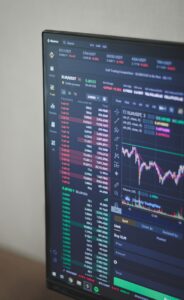Understanding the Risks of Forex Trading: Tips for Minimizing Losses
Forex trading is a popular form of investment that offers the potential for high returns. However, it is important to understand that trading in the foreign exchange market involves significant risks. In this article, we will discuss some of the key risks associated with forex trading and provide tips for minimizing losses.
1. Volatility:
One of the biggest risks in forex trading is the high level of volatility in the market. Currency prices can fluctuate rapidly due to various factors such as economic news, geopolitical events, and market sentiment. These price fluctuations can result in significant losses if you are not prepared. To minimize this risk, it is important to have a solid trading plan in place and to use risk management tools such as stop-loss orders.
2. Leverage:
Forex trading offers the opportunity to trade on margin, which means that you can control a larger position with a relatively small amount of capital. While leverage can amplify your profits, it can also magnify your losses. It is essential to use leverage wisely and to understand the potential risks involved. Avoid over-leveraging your trades and always consider the potential downside before entering a position.
3. Lack of Regulation:
The forex market is decentralized and operates 24 hours a day, five days a week. As a result, it is not subject to the same level of regulation as other financial markets. This lack of regulation can make forex trading more risky, as there is a higher chance of encountering fraudulent brokers or trading platforms. To minimize this risk, it is important to choose a reputable broker that is regulated by a recognized financial authority.
4. Emotional Trading:
Emotions can often get in the way of making rational trading decisions. Fear and greed are common emotions that can lead traders to make impulsive and irrational decisions. To minimize the risk of emotional trading, it is important to have a clear trading plan and to stick to it. Use tools such as stop-loss orders to automatically exit a trade if it is going against you, and avoid making impulsive trades based on short-term market fluctuations.
5. Lack of Knowledge and Experience:
Forex trading requires a certain level of knowledge and experience. Without a solid understanding of the market and the factors that influence currency prices, you are more likely to make costly mistakes. To minimize this risk, it is important to educate yourself about the forex market and to practice trading in a risk-free demo account before risking real money. Consider taking online courses or attending seminars to enhance your knowledge and skills.
6. Technical Issues:
Technical issues can also pose a risk in forex trading. Internet connection problems, platform glitches, or power outages can prevent you from executing trades or monitoring the market. To minimize this risk, it is important to have a reliable internet connection and to use a stable trading platform. Consider using a backup internet connection or a mobile trading app as a contingency plan.
In conclusion, forex trading offers the potential for high profits, but it also comes with significant risks. Understanding and managing these risks is crucial for minimizing losses and protecting your capital. By following the tips outlined in this article, you can enhance your trading skills and increase your chances of success in the forex market. Always remember to trade responsibly and to never risk more than you can afford to lose.






